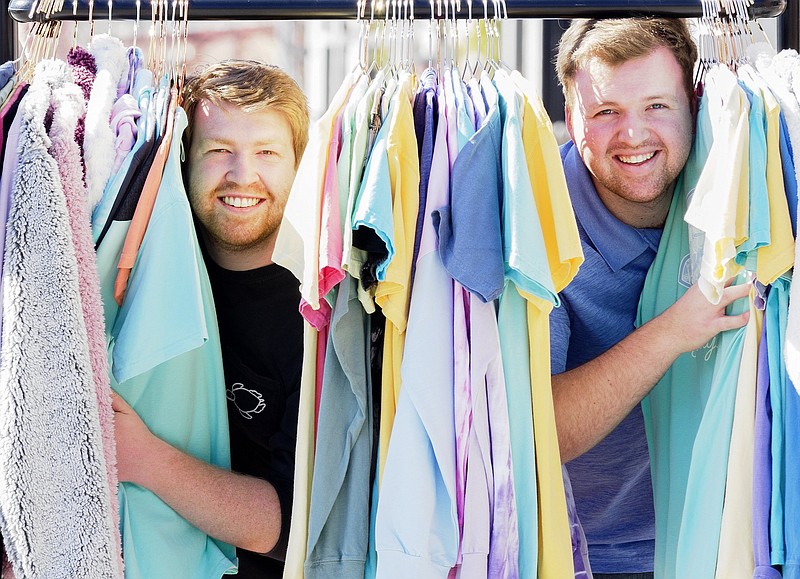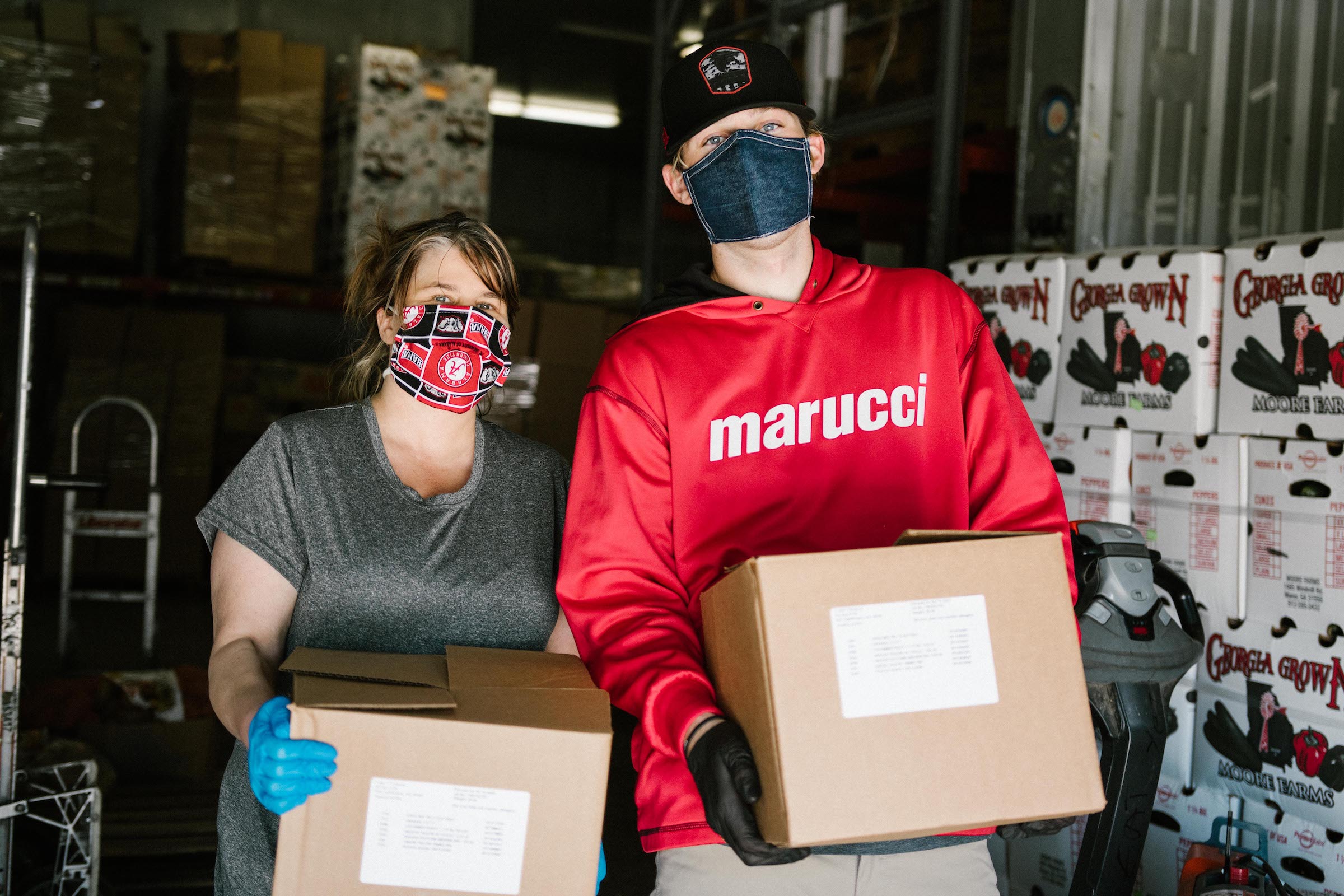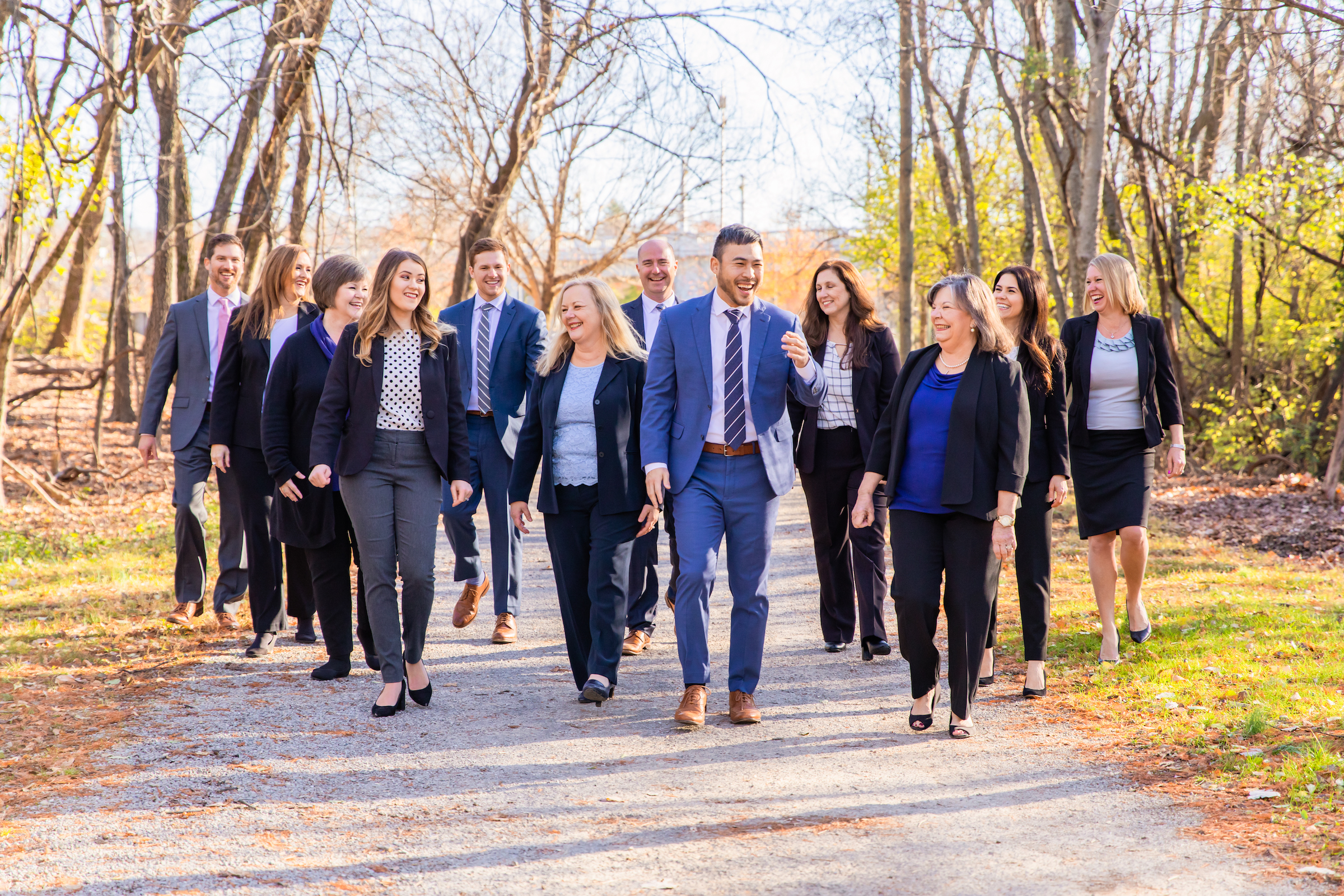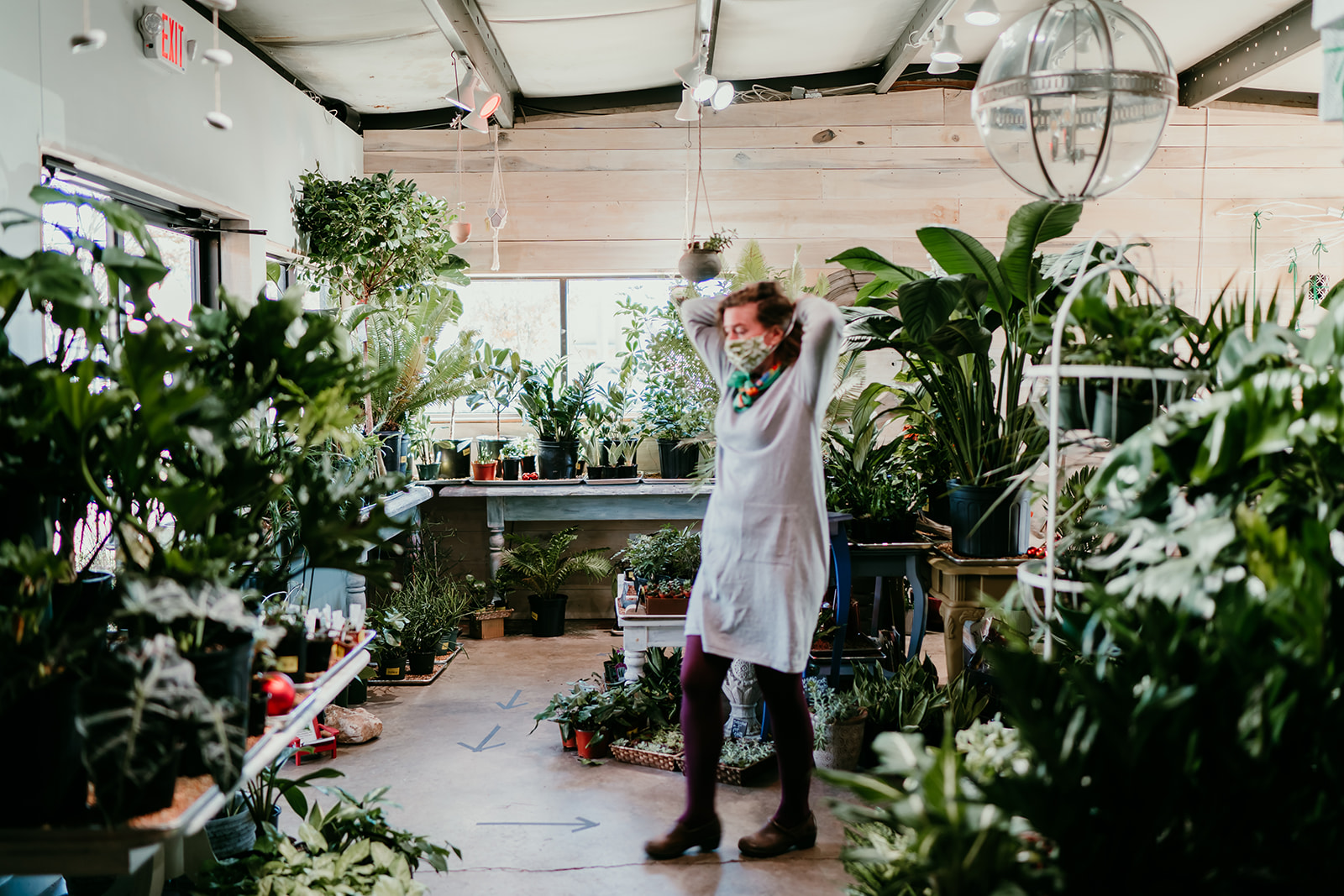Philanthropy is a big word, but giving back isn't just for big businesses. In fact, 75% of small business owners donate an average of 6% of their profits to charitable organizations annually, according to data compiled by SCORE, the nation's largest network of volunteer, expert business mentors. Meet some local entrepreneurs who make giving back a major part of their work.
Shelly Cove: Apparel with a mission
Matt Schroeder grew up visiting the Karen Beasley Sea Turtle Sanctuary in Topsail Island, North Carolina, every summer, and he built his business on an idea for supporting their work.
"We commit a baseline of 10% of profits, and that's woven into the mission of the company," says Schroeder, who launched his turtle-themed apparel company Shelly Cove from his parents' garage in 2015. "More often than not, we end up giving more than that. We'll do events where one day we'll donate 100%"
In 2020, about 30% of profits from Shelly Cove went to various nonprofit organizations, including turtle rescue and Chattanooga-area philanthropies, Schroeder says.
"I've always had a passion for business, but I also have a passion for philanthropy," says Schroeder, who graduated from Covenant College in 2017, and moved his growing business into the Hamilton County Business Development Center on the North Shore in 2018.
He points to mission-driven, for-profit companies like Tom's Shoes as examples he emulates, Schroeder says.
"I love that model so much - being able to build something that has a product people can get behind that also has a mission you stand for. You can have a bigger impact through that, and do more than generate income."
In 2020, Shelly Cove had nearly $3 million in sales, and Schroeder's former college roommate Brad Sewell signed on as a co-owner. The company now has about a dozen employees, and plans to keep expanding their business and their commitment to giving, Schroeder says.
"We see so much growth potential in this," he says. "We know we're not capped at where we're at - we've bootstrapped and made mistakes, and we know there's room to grow."
T&T Produce: Feeding a need
When the pandemic hit, business at T&T Produce in Ringgold, Georgia, went from "100 miles an hour to zero" in the blink of an eye, says Tanner Buchanan, operations director. But the difficult economic environment meant a new opportunity to serve the community, he says.
"Community service has always been a staple of our company - our company value is service not only to the customer but to the market and community as a whole," he says.
With their wholesale business to restaurants and schools suddenly on the skids, T&T quickly redirected their resources.
On March 21, 2020, the company donated 400 cases of fresh fruits and vegetables to the Chattanooga Area Food Bank, and delivered over 20,000 pounds over the next few weeks.
"They've been a partner of ours for 20-plus years," Buchanan says.
As the pandemic persisted, T&T joined the USDA's Farmers to Families Food Box program, using its distribution and packing operations to get 15,000 produce boxes a week to non-profit programs in Chattanooga, Nashville, Knoxville, and Birmingham.
From May through October, the business distributed more than 11 million pounds of food as part of the pandemic relief effort.
"Supporting our community has been the pillar and leading encouragement of our business model since T&T Produce's beginning in 1989," says Anthony Buchanan, CEO and co-founder of the business.
Acumen Wealth Advisors: A culture of community support
For founders Arie and Reese Veltenaar, launching Acumen Wealth Advisors in 2012 was as much about creating a culture of community and service as it was about dollars and cents.
"Supporting local charities and organizations has been important to both of us since we were young, and is something we've made a focus in our firm," Arie says. "We have a dedicated [web] page to help bring visibility to organizations we support, and have averaged over $25,000 each year in charitable gifts."
The Veltenaars encourage their 17 employees to donate time and resources through a matching gifts program, give time off for volunteerism, and members of their team serve as board members for six nonprofit organizations. Last year, rather than sending out client gifts for the holidays, the Veltenaars mailed cards asking their clients to choose charities they could donate to on their behalf.
"We got a good response to that," Arie says. "We just wrote those checks last week: $3,000 to Northside Neighborhood House, $1,000 to the Chattanooga Zoo and $1,000 to the Hamilton County Schools Foundation."
In 2019, the Veltenaars had a consultant help them put together a formal social responsibility policy to help guide their giving.
"We started getting a ton of requests, and it becomes a lot and we hate to say no, so we really wanted to solidify a plan," Arie says. "We engaged our entire team, and we all decided as a group that our main focus and passions were to help children, families and education."
The Veltenaars also recently created a $25,000 scholarship at the University of Tennessee at Chattanooga for a business student in the Student Managed Investment Learning Experience (SMILE) program.
After earning their undergraduate degrees at the University of Florida and moving to Chattanooga, the Veltenaars earned graduate degrees in the business school at UTC, and became big boosters of the school.
"Reese and I had the most amazing experience at UTC," Arie says. "We just wanted to do something meaningful - that's where Reese and I are as we're getting older, we want to make more meaningful, long-term gifts."
Their business has grown steadily, and they hired more people even during the height of the pandemic. Each success makes them more determined to find ways to pay it forward, Arie says.
"We've worked so hard, but we've been so blessed, and not everyone is as fortunate," she says. "It really is a part of everything we do, and I could not imagine being happier in what we're doing."
Bees on a Bicycle: Foster community, create beauty
When she opened her organic garden shop on Market Street in 2017, Cath Truelove knew she wanted to run a for-profit business, even though her focus is on growing community and supporting sustainability.
"We very consciously want to be a small business because we wanted to reach into the tax base," she says. "I know paying taxes is a good thing - it means you're making money, you are investing in textbooks and school lunches and our infrastructure. I really want to be part of the contribution of that in the community."
Her focus, though, is very much on promoting sustainable, organic practices and educating the community on topics from native plants and regenerative farming to childhood nutrition.
"Our motto is 'foster community, create beauty,'" Truelove says. "It's very much in the DNA of what we're about."
As she has grown her knowledge of gardening and landscaping over the years, Truelove has carved her own path in what is normally a chemical-laden industry, she says.
"I worked for a big box store and saw the pesticides and herbicides that went out the door," she says. "I asked myself when I opened Bees if perhaps there was a better way - for our gardens, our children, our community."
At the end of April, she'll begin selling heirloom vegetables, herbs and flowers in fully biodegradable 3-inch pots, Truelove says. "Thousands of them," she says. "I'm so excited about this."
She's also encouraging her customers to plant perennials, in part for the sake of reduced waste.
"If you're planting seasonally, you have a plastic container coming from the grower four times a year, but if you plant a perennial that lasts 20 years and has seasonal interest and you have one container," she says.
Bees on a Bicycle has stayed small, relying a good bit on volunteer help in addition to some part-time employees, but that has cultivated a close community of people who share a love for the mission of the business, Truelove says.
"Staying small has allowed us to have a one-on-one community that is a little bit more intimate," she says.
And the support of her customers and neighbors has become one of the best parts of the business, she adds.
"They call Tennessee the Volunteer State, and it is so true," she says. "I have lived all over the world - Texas, Massachusetts, California - and I have never seen the offer to help like I've seen here in Tennessee."
READ MORE
* From tires to trucking, transportation businesses clean up
* Getting clean: Green means business in building a more energy-efficient future
* Bright futures: STEP-UP helps diverse students earn career success



